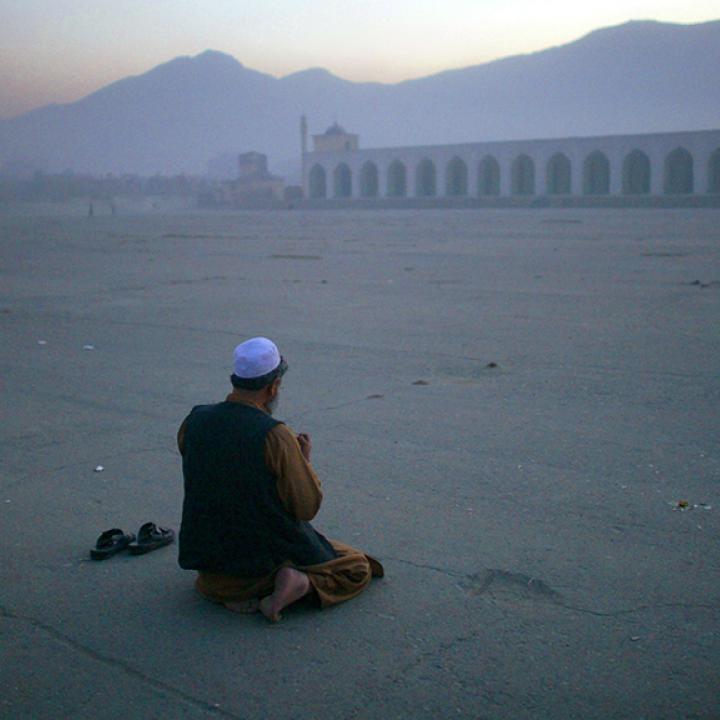

Rather than remaining bystanders, moderate Muslims need to join forces in recognition that their religion and its central texts have been hijacked by a small minority for political ends.
To mark the Prophet Muhammad's birthday, Egyptian President Abdul Fattah al-Sisi delivered an impassioned speech at Al-Azhar University calling for reforming Islam and purging the religion of extremist ideas. This call should not be taken lightly, particularly in the aftermath of the tragic spate of terrorist attacks in Paris. However, it does provoke several difficult questions: How can we reform Islam and purge extremist interpretations? How can Islam, and for that matter all religions, be purged of radicals and extremists who preach and practice hate and intolerance in the name of God? Can the state impose religious change without the support of official religious authorities? Can there be an honest and enlightened interpretation of the Quran without sparking a counterrevolution?
Religious texts, whether Muslim, Jewish, or Christian, share similar messages of peace, justice, mercy, forgiveness, reconciliation, and moderation. The Quran even cautions against religious zealots, warning in Surat al-Nisaa: "do not commit excess in your religion." Similarly, the Prophet Muhammad instructed his followers to "adopt the path of moderation." In spite of this, many preachers talk about the ascendancy of their own faith over all other religions; they have no interest in interfaith dialogue or understanding.
Sisi's comments are welcome, but they are only the beginning. He was right to point out that the heart of the problem lies in "interpretations of the faith entrenched for hundreds of years." For quite some time, radical Muslims have been interpreting the verses of the Quran to serve their own political agendas, and only a few moderates have had the courage to stand up to them.
For instance, one interpretation of verses six and seven of Surat al-Fatiha is particularly perverse. "Guide us to the straight path," the verse reads, "the path of those upon whom You have bestowed favor, not of those who have evoked [Your] anger or of those who are astray." Radical Muslims teach this to mean that Muslims are blessed, Jews are cursed, and Christians have gone astray. However, a more truthful understanding of these verses is that the pious -- whether Muslim, Jewish, or Christian -- are blessed, the non-believers are cursed, and those who are lost are the hypocrites. Islam is meant to be a message to all of humanity.
Another example is verse nineteen from Surat aal-Imran, which states that "religion to God is Islam." For radical Muslims, this verse means that God has distinguished Islam from Christianity and Judaism. However, the word "Islam" in this context, as is clear from other verses in the Quran, refers to those who submit to God and believe in God, which would include Jews and Christians. The Quran asserts in Surat aal-Imran: "Say, 'We have believed in Allah and in what was revealed to us and what was revealed to Abraham, Ishmael, Isaac, Jacob, and the Descendants, and in what was given to Moses and Jesus and to the prophets from their Lord. We make no distinction between any of them, and we are Muslims [submitting] to Him.'"
Extremists have also adopted controversial interpretations of the hadith. For example, in a hadith explaining how the Prophet predicted a battle on the Day of Judgment between Jews and Muslims in which Muslims would triumph, radical groups promote an interpretation by Sahih al-Muslim describing how trees and stones will call upon Muslims to kill the Jews hiding behind them. This hadith contradicts the teachings of Islam and the text of the Quran which says, in Surat aal-Imran, "He [God] has sent down upon you, [O Muhammad], the Book in truth, confirming what was before it. And He revealed the Torah and the Gospel." Elsewhere, in Surat al-Ankabut, it says: "And do not argue with the People of the Scripture except in a way that is best, except for those who commit injustice among them, and say, 'We believe in that which has been revealed to us and revealed to you. And our God and your God is one; and we are Muslims [in submission] to Him.'" There are many other parts of the Quran and hadith that similarly challenge such hostile reading, including the biographical accounts of the Prophet recorded in the hadith collection of Sahih al-Bukhari. He describes how the Prophet stood up in respect when a funeral procession passed by him. His companions commented, "But it is a funeral of a Jew," to which the Prophet responded: "Isn't he a human soul?"
Moderate Muslims cannot remain bystanders. We have to join forces in recognition that our religion has been hijacked by a small minority for political ends. We must raise our voices, no matter the risk, and stand up for what we believe. Only our voices can stem the allure of radical Islam. We must draw on our creativity and innovation to promote moderation in religion and politics, and strive to create a world of egalitarianism, democracy, and prosperity. This is the right path.
Mohammed Dajani founded the Wasatia movement of moderate Islam. He was previously a professor of political science at al-Quds University in Jerusalem. This article was originally published on the Fikra Forum website.



